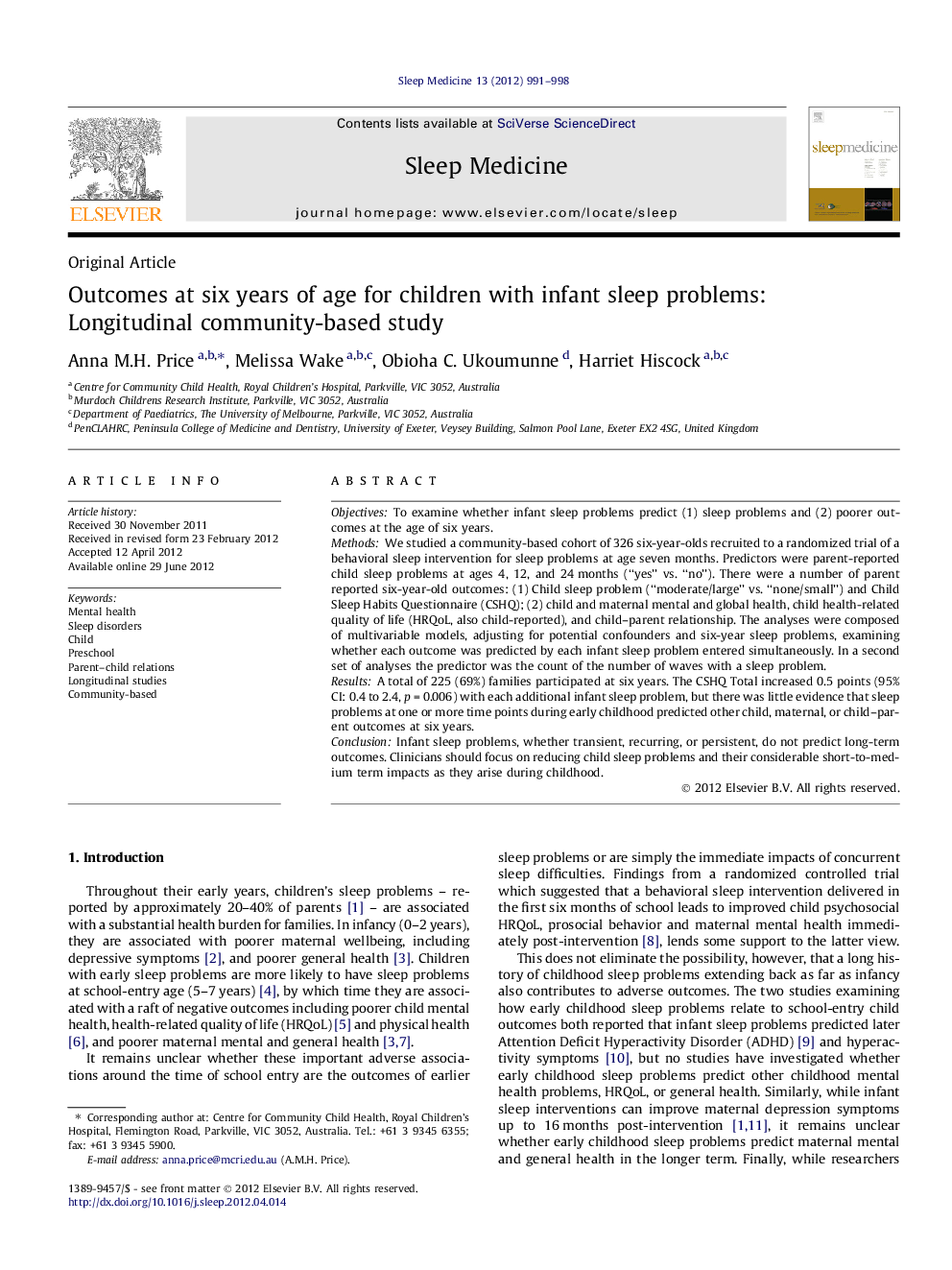| Article ID | Journal | Published Year | Pages | File Type |
|---|---|---|---|---|
| 6061446 | Sleep Medicine | 2012 | 8 Pages |
ObjectivesTo examine whether infant sleep problems predict (1) sleep problems and (2) poorer outcomes at the age of six years.MethodsWe studied a community-based cohort of 326 six-year-olds recruited to a randomized trial of a behavioral sleep intervention for sleep problems at age seven months. Predictors were parent-reported child sleep problems at ages 4, 12, and 24 months (“yes” vs. “no”). There were a number of parent reported six-year-old outcomes: (1) Child sleep problem (“moderate/large” vs. “none/small”) and Child Sleep Habits Questionnaire (CSHQ); (2) child and maternal mental and global health, child health-related quality of life (HRQoL, also child-reported), and child-parent relationship. The analyses were composed of multivariable models, adjusting for potential confounders and six-year sleep problems, examining whether each outcome was predicted by each infant sleep problem entered simultaneously. In a second set of analyses the predictor was the count of the number of waves with a sleep problem.ResultsA total of 225 (69%) families participated at six years. The CSHQ Total increased 0.5 points (95% CI: 0.4 to 2.4, p = 0.006) with each additional infant sleep problem, but there was little evidence that sleep problems at one or more time points during early childhood predicted other child, maternal, or child-parent outcomes at six years.ConclusionInfant sleep problems, whether transient, recurring, or persistent, do not predict long-term outcomes. Clinicians should focus on reducing child sleep problems and their considerable short-to-medium term impacts as they arise during childhood.
